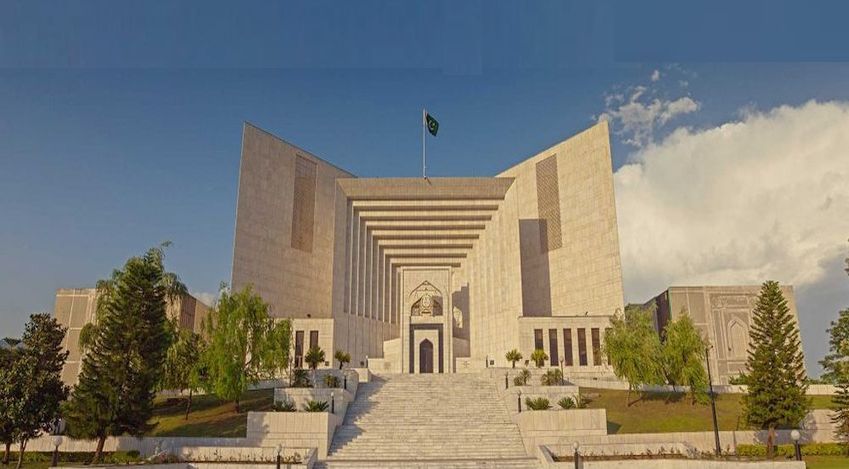ECP has the Power to appoint Election Tribunals but such Appointments must be made in Consultation with the Chief Justice of the relevant High Court --- Supreme Court of Pakistan
Islamabad 05-10-2024: The Supreme Court of Pakistan has amicably resolved the dispute between the Election Commission of Pakistan (ECP) and the Lahore High Court regarding the appointment of Election Tribunals in Punjab. The case, heard by a five-member bench led by Mr. Chief Justice Qazi Faez Isa, was concluded with an agreement between the parties, negating the need for judicial intervention.
The appeal arose from the Lahore High Court's judgment, which had questioned the ECP's authority to unilaterally appoint Election Tribunals and emphasized the role of the Chief Justice of the Lahore High Court in the consultation process. The High Court's judgment had asserted that the ECP must consult the Chief Justice more meaningfully, referring to precedents set in Al-Jehad Trust v. Federation of Pakistan (PLD 1996 Supreme Court 324) and Riaz-ul-Haq v. Federation of Pakistan (PLD 2013 Supreme Court 501).
The Supreme Court's decision to set aside the High Court's judgment was based on the successful consultation held between the Chief Election Commissioner and the Chief Justice of the Lahore High Court, which led to the amicable resolution of the dispute. The Supreme Court of Pakistan noted that the absence of direct communication had caused misunderstandings and prolonged litigation.
In its ruling, the Supreme Court of Pakistan reaffirmed that the ECP, as a constitutional body, has the power to appoint Election Tribunals under Article 219(c) of the Constitution and Section 140 of the Elections Act, 2017. However, the Court emphasized that such appointments must be made in consultation with the Chief Justice of the relevant High Court to ensure judicial independence and fairness in electoral processes.
Mr. Justice Qazi Faez Isa, while delivering the judgment, highlighted the importance of maintaining harmonious relations between constitutional entities. He stated that any disputes involving constitutional bodies or office holders should be resolved through dialogue and consultation, with judicial adjudication being the last resort.
The bench appreciated the efforts of both the Chief Election Commissioner and the Mr. Chief Justice of the Lahore High Court for resolving the issue through mutual understanding and meaningful consultation. The Court observed that if the Lahore High Court had been informed earlier of the lack of direct consultation, the impugned judgment might not have been passed.
The ruling also addressed the procedural requirements for appointing Election Tribunals, clarifying that the ECP should not unilaterally decide on the appointment of judges without considering the Chief Justice's recommendations and the judges' availability.
Mr. Justice Jamal Khan Mandokhail, in his concurring note, added that setting aside the High Court’s judgment did not render it illegal, as no finding on the merits of the case had been made by the Supreme Court. This clarification ensures that the High Court’s reasoning remains available for future reference without making it a binding precedent.
The Supreme Court’s decision is a significant step towards clarifying the constitutional roles of the ECP and the judiciary in election-related matters, ensuring that future appointments of Election Tribunals are conducted in a manner that upholds the principles of judicial independence and fair play.
Powered by Froala Editor








